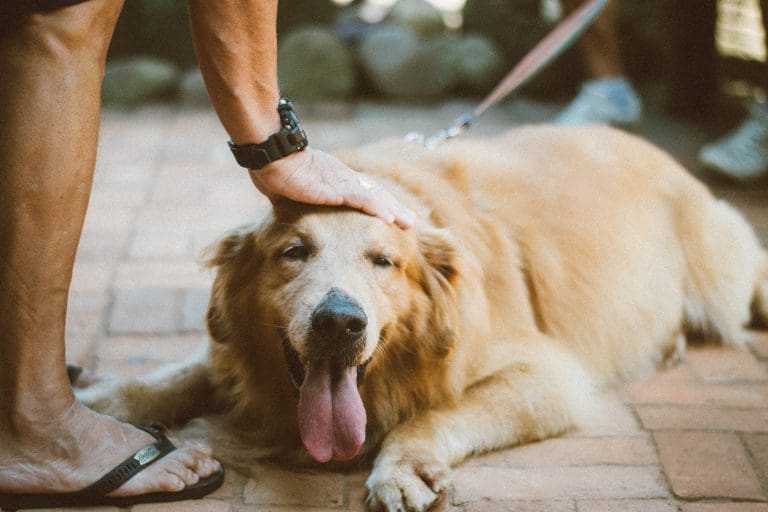What Causes Sudden Hind Leg Weakness In Dogs?
Post Date:
December 10, 2024
(Date Last Modified: December 10, 2024)
Experiencing sudden hind leg weakness in dogs can be distressing for pet owners. This condition can arise unexpectedly, prompting concern about your furry friend’s health. Identifying potential causes is crucial, as early detection and treatment can significantly improve outcomes.
Manifestations of Weakness
Hind leg weakness can present in various ways. Your dog may struggle to stand, have difficulty walking, or drag one or both hind legs. Regardless of the specific symptoms, this condition can indicate an underlying health issue that demands prompt attention.
Common Causes
**Intervertebral Disc Disease (IVDD)** A frequent cause of sudden hind leg weakness is intervertebral disc disease (IVDD). This condition occurs when cushioning discs between the vertebrae in a dog’s spine rupture or bulge, compressing the spinal cord and causing pain and weakness in the hind legs. Breeds such as dachshunds, beagles, and corgis are particularly susceptible due to their body structure. If your dog exhibits sudden weakness, especially if accompanied by pain or reluctance to move, IVDD may be a likely cause.
**Traumatic Injury** Another potential cause is a traumatic injury. Dogs, being naturally curious and active, can suffer accidents. A fall, collision with another animal, or rough play can lead to injuries that impair mobility. Fractures, sprains, or strains may result in sudden weakness in the hind legs. If you suspect an injury, a visit to the veterinarian is essential for assessment and treatment.
**Neurological Issues** Neurological conditions, such as degenerative myelopathy or spinal tumors, can also lead to sudden hind leg weakness. Degenerative myelopathy is particularly concerning as it is a progressive disease affecting older dogs. While the onset is gradual, the escalation of hind leg weakness can be swift, making veterinary consultation vital for diagnosis and management.
**Infections** Infections can contribute to sudden hind leg weakness as well. Lyme disease, transmitted by ticks, can cause lameness and weakness. Other infections affecting the nervous system, caused by specific viruses or bacteria, can also manifest as sudden weakness. If your dog has been exposed to ticks or shows signs of illness, seeking veterinary care is critical.
**Metabolic Disorders** Metabolic disorders, such as diabetes or hypothyroidism, can lead to weakness and lethargy. Diabetic dogs may experience neuropathy, affecting their legs and overall strength. Regular veterinary check-ups are important for managing known metabolic conditions and preventing complications.
**Nutritional Deficiencies** Nutritional deficiencies can also result in weakness. A lack of essential vitamins or minerals can impair muscle function and overall health. For instance, deficiencies in vitamin E or certain B vitamins may lead to weakness and coordination issues. Ensuring a balanced diet with necessary nutrients is vital for maintaining your dog’s health.
**Toxicity** Toxicity is another factor that can cause sudden hind leg weakness. Common household items, including certain plants, foods, and chemicals, can be toxic to dogs. Ingesting these substances may lead to various symptoms, including weakness or tremors. If you suspect your dog has consumed something harmful, immediate veterinary care is crucial, as some toxins can be life-threatening.
**Serious Health Conditions** Sudden hind leg weakness can also signal more serious health issues, such as cancer. Tumors affecting the spine or nervous system can lead to weakness or loss of coordination. Although less common, it’s important to consider this possibility, especially in older dogs or those displaying other signs of illness.
Recognizing the Signs
Pay attention to any changes in your dog’s behavior, mobility, or overall demeanor. Signs such as reluctance to move, apparent pain, or difficulty standing should be taken seriously. Early intervention can lead to better outcomes, regardless of the underlying cause.
Seeking Veterinary Care
Upon noticing sudden hind leg weakness, consulting with a veterinarian is essential. A thorough examination, including physical assessment and potentially diagnostic imaging, will help identify the cause of the weakness. Your veterinarian may recommend blood tests, X-rays, or MRI scans to clarify the situation.
Treatment Options
Based on the diagnosis, your veterinarian will recommend a treatment plan tailored to your dog’s needs. Treatment may involve medications for pain management, anti-inflammatories, or surgery for conditions like intervertebral disc disease. Physical therapy can also be crucial for recovery, helping to strengthen muscles and improve mobility.
Supporting Your Dog
Your veterinarian may suggest lifestyle changes to support your dog’s health, including dietary adjustments, supplements, or modifications to their exercise routine. Understanding your dog’s needs and collaborating with your veterinarian can help ensure the best outcome.
Emotional Considerations
Witnessing your dog struggle with hind leg weakness can take an emotional toll. Many pet owners feel anxious or helpless about their pet’s health. Remember, you’re not alone; many dog owners face similar challenges, and resources are available to support you. Connecting with other pet owners or seeking advice from veterinary professionals can provide valuable insights and comfort.
Ongoing Care and Prevention
Caring for a dog with sudden hind leg weakness requires patience and understanding. Providing a comfortable environment, assisting with mobility, and being attentive to their emotional state can significantly aid recovery. Regular veterinary check-ups can help monitor health and catch potential issues early. Keeping track of your dog’s weight, diet, and exercise also contributes to their overall well-being. Being proactive about your dog’s health is essential for avoiding future complications.
Understanding the causes of sudden hind leg weakness in dogs is vital for all pet owners. Early intervention, proper veterinary care, and ongoing support can help your dog regain strength and enhance their quality of life. Your dog relies on you for care and support, and being informed is the best way to ensure they receive the help they need.






